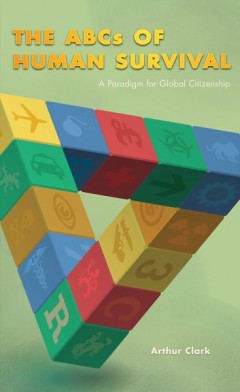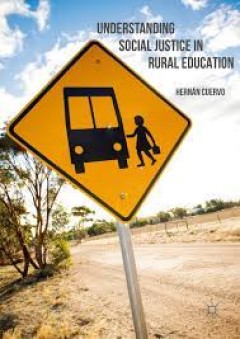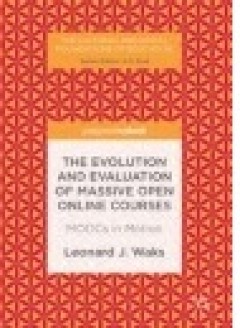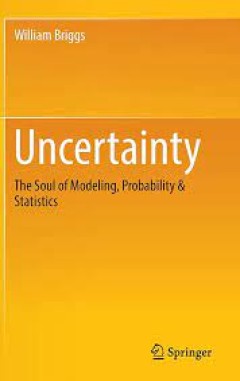Filter by

Vladimir Solov’ëv's Justification of the Moral Good Moral Philosophy
This new English translation of Solov’ëv’s principal ethical treatise, written in his later years, presents Solov’ëv’s mature views on a host of topics ranging from a critique of individualistic ethical systems to the death penalty, the meaning of war, animal rights, and environmentalism. Written for the educated public rather than for a narrow circle of specialists, Solov’ëv’s w…
- Edition
- -
- ISBN/ISSN
- 978-3-319-12775-0
- Collation
- LXX, 435
- Series Title
- -
- Call Number
- -

Value Economics The Ethical Implications of Value for New Economic Thinking
The last financial crisis revealed a gap between business practice and ethics. In Value Economics, Griffiths and Lucas examine some of the reasons for this ethical gap and discuss the resulting loss of confidence in the financial system. One of the reasons has been hazy or inadequate thinking about how we value economic enterprises. With the close link between the creation of value and business…
- Edition
- -
- ISBN/ISSN
- 978-1-137-54187-1
- Collation
- XV, 281
- Series Title
- -
- Call Number
- -

How to Read Like You Mean It
In this candid and concise volume, Kyle Conway, author of The Art of Communication in a Polarized World, considers how we can open ourselves to others and to ideas that scare us by reading difficult texts. Conway argues that because we resist ideas we don’t understand, we must embrace confusion as a constitutive part of understanding and meaningful exchange, whether between a reader and a tex…
- Edition
- -
- ISBN/ISSN
- 9781771993753
- Collation
- -
- Series Title
- -
- Call Number
- 6 x 9, 184 pages

ABCs of Human Survival A Paradigm for Global Citizenship
The ABCs of Human Survival examines the effect of militant nationalism and the lawlessness of powerful states on the well-being of individuals and local communities―and the essential role of global citizenship within that dynamic. Based on the analysis of world events, Dr. Arthur Clark presents militant nationalism as a pathological pattern of thinking that threatens our security, while empha…
- Edition
- -
- ISBN/ISSN
- 9781897425688.01
- Collation
- -
- Series Title
- -
- Call Number
- 280 pages

Unifying the Philosophy of Truth
This anthology of the very latest research on truth features the work of recognized luminaries in the field, put together following a rigorous refereeing process. Along with an introduction outlining the central issues in the field, it provides a unique and unrivaled view of contemporary work on the nature of truth, with papers selected from key conferences in 2011 such as Truth Be Told (Amster…
- Edition
- -
- ISBN/ISSN
- 978-94-017-9673-6
- Collation
- 30 b/w illustrations
- Series Title
- -
- Call Number
- -

The Virtues of Disillusionment
Most people go through life chasing illusions of success, fame, wealth, happiness, and few things are more painful than the reality-revealing loss of an illusion. But if illusions are negative, why is the opposite, being disillusioned, also negative? In this essay based on his inaugural writer-in-residence lecture at Athabasca University, internationally acclaimed writer Steven Heighton mathema…
- Edition
- -
- ISBN/ISSN
- 9781771993265.01
- Collation
- -
- Series Title
- -
- Call Number
- 5 x 8, 48 pages

The Virtues of Disillusionment
Most people go through life chasing illusions of success, fame, wealth, happiness, and few things are more painful than the reality-revealing loss of an illusion. But if illusions are negative, why is the opposite, being disillusioned, also negative? In this essay based on his inaugural writer-in-residence lecture at Athabasca University, internationally acclaimed writer Steven Heighton mathema…
- Edition
- -
- ISBN/ISSN
- 9781771993265.01
- Collation
- -
- Series Title
- -
- Call Number
- 5 x 8, 48 pages

Understanding Social Justice in Rural Education
This book explores what social justice looks like for rural schools in Australia. The author challenges the consensus that sees the distribution of resources as the panacea for the myriad challenges faced by rural schools and argues that the solution to inequality and injustice in rural settings has to take into account other important dimensions of social justice such as recognition and associ…
- Edition
- -
- ISBN/ISSN
- 978-1-137-50515-6
- Collation
- VII, 215
- Series Title
- -
- Call Number
- -

The Evolution and Evaluation of Massive Open Online Courses
This book offers a re-assessment of the educational and occupational value of MOOCs based on developments since 2013. When MOOCs appeared--amidst great fanfare in 2012, leaders proclaimed an educational “revolution.” By 2013, however, dramatic failures, negative research findings, and sharp critiques ended the MOOC hype. This book examines both MOOCs and prior distance learning innovations,…
- Edition
- -
- ISBN/ISSN
- 978-1-349-85204-8
- Collation
- XVII, 136
- Series Title
- The Cultural and Social Foundations of Education
- Call Number
- -

Uncertainty The Soul of Modeling, Probability & Statistics
This book presents a philosophical approach to probability and probabilistic thinking, considering the underpinnings of probabilistic reasoning and modeling, which effectively underlie everything in data science. The ultimate goal is to call into question many standard tenets and lay the philosophical and probabilistic groundwork and infrastructure for statistical modeling. It is the first book…
- Edition
- -
- ISBN/ISSN
- 978-3-319-39756-6
- Collation
- 23 b/w illustrations
- Series Title
- -
- Call Number
- -
 Computer Science, Information & General Works
Computer Science, Information & General Works  Philosophy & Psychology
Philosophy & Psychology  Religion
Religion  Social Sciences
Social Sciences  Language
Language  Pure Science
Pure Science  Applied Sciences
Applied Sciences  Art & Recreation
Art & Recreation  Literature
Literature  History & Geography
History & Geography